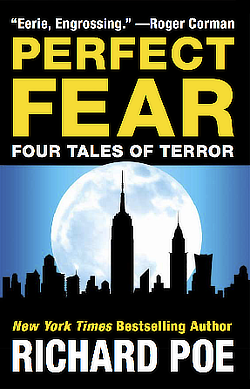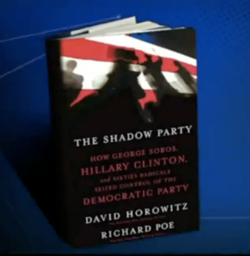The End of Christendom
The “Third Way” Plan for Gun Abolition
The UN Should Stay Out of Our Election
SHOULD THE United Nations intervene in our election? Some Americans think so. Princeton historian Sean Wilentz, for instance, has proposed holding a “run-off” election, supervised by UN secretary general Kofi Annan. “There’s nothing in the Constitution about any of this,” Wilentz admits. But that doesn’t seem to worry him. Wilentz says we should go ahead […]
SHOULD THE United Nations intervene in our election? Some Americans think so. Princeton historian Sean Wilentz, for instance, has proposed holding a “run-off” election, supervised by UN secretary general Kofi Annan.
“There’s nothing in the Constitution about any of this,” Wilentz admits. But that doesn’t seem to worry him. Wilentz says we should go ahead and do it anyway. (1)
If Wilentz’s proposal represents some sort of trial balloon from the Clinton-Gore camp, it points to serious trouble ahead.
Americans have long meddled freely in other people’s elections. Now we may learn how it feels to have other people meddling in ours.
“Unless and until [the Democrats] are convinced that Bush won Florida fair and square… it won’t be a legitimate election,” Wilentz warns.
Think about what he’s saying. Wilentz claims that, in order for the election to be “legitimate,” the Paul Begala and Rosie O’Donnell types must concede that Bush won “fair and square.” We all know that’s about as likely to happen as Johnnie Cochrane admitting OJ was guilty. So where does that leave us? Wilentz explains: “Peace in the country requires that this not just be a done election, but that it be a legitimate election.”
I see. So “peace” depends on the Democrats accepting a Bush presidency as “legitimate.” Since they obviously never will, Wilentz is clearly warning us that what lies ahead is, well, something other than “peace.” I guess he’s talking about war.
Slowly but surely, it becomes clear how the case for UN intervention can be made.
ITAR-TASS reported on October 24 that a group of Russian lawmakers had proposed monitoring the U.S. election, to ensure compliance with “universal democratic norms.” Perhaps the Russians knew something we didn’t.(2)
“The presidential election in the United States cannot be exclusively an internal affair of that country,” they argued in a draft resolution, “as it directly concerns the vital interests of other countries.” Their proposal was voted down. But if Gore calls for international mediation, then the next vote of the Russian Duma — or of the UN Security Council — might just go the other way.
Imagine turning on the TV and seeing Paul Begala and Alan Dershowitz arguing, “Okay, it’s no fun letting foreigners dictate who our next president is going to be. But isn’t it better than civil war?”
Well, is it? A hundred forty years ago, Americans faced the same question. We answered with a resounding, “No!”
France and England both offered to mediate between North and South, during the Civil War. Abraham Lincoln turned them down flat. He understood that there is no such thing as an impartial mediator. Lincoln knew that France and England were up to no good.
America’s Monroe Doctrine had long frustrated European monarchs eager to expand in the New World. The French Emperor Louis Napoleon Bonaparte dreamed of annexing Mexico, and was rumored to have his eye on Florida and Louisiana as well. Britain wanted greater control over North American markets. A divided America would be too weak to resist these schemes. France and Britain therefore favored southern independence. (3)
Had Lincoln given in, France and England would have “mediated” the United States right out of existence.
They almost succeeded, even without Lincoln’s cooperation. A series of Union defeats in 1862 and 1863 emboldened France and England. Napoleon III landed troops in Mexico and installed a puppet government, in defiance of the Monroe Doctrine. (4) French and British diplomats maneuvered behind the scenes to build a European coalition strong enough to force mediation on Lincoln. (5)
Two miracles thwarted the conspirators. The first was Lee’s defeat at Gettysburg. The second was an event far less familiar to Civil War buffs, but perhaps equally decisive.
Lincoln had been courting the Russian Tsar, Alexander II, since the war began. Now his diplomacy paid off. Two Russian war fleets docked in New York and San Francisco, in September and October 1863 respectively. They remained in U.S. waters for seven months. (6)
The reason for this deployment was complicated. But its effects were not. Whatever his motive, the Tsar’s audacity in sending his fleet to America discouraged French and British interventionists. By the time the Russians withdrew, the war had turned decisively in Lincoln’s favor. (7)
Union diplomacy saved us from foreign intervention. Thanks to Lincoln’s firmness, Americans were left alone to settle their differences among themselves.
Those of us tempted to echo Wilentz’s cry should remember the lessons of our forefathers. War is a hard thing. But the men who built this nation preferred it to foreign meddling.
FOOTNOTES
1. Compiled by Salon Staff, “We’re in a Constitutional Crisis,” Salon.com, November 8, 2000
2. ITAR-TASS, October 24, 2000
3. Albert A. Woldman, Lincoln and the Russians (Cleveland and New York: The World Publishing Company, 1952), pp. 84-103; Alexandre Tarsaïdzé, Czars and Presidents: The Story of a Forgotten Friendship (New York: McDowell, Obolensky, 1958), page 184
4.
5. Woldman, Lincoln and the Russians (1952), pp. 84-103
6. ibid., pp. 140-149
7.
Cross-posted from FrontPage 11.20.00
Cross-posted from NewsMax.com 11.20.00







